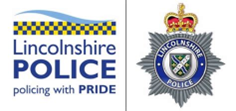Kicking ket off Lincoln's streets
We're raising awareness of the devastating impact of ketamine and encouraging young people to give information 100% anonymously about those dealing in and around Lincoln.
Ketamine use has dramatically increased across the country, with Lincoln City seeing more young people than ever using the drug.
In March 2023, it was recorded that over 299,000 people aged between 16-59 had used ketamine that year, with numbers more than tripling in those under 25.
Ketamine, also known as ‘VitaminK’, ‘Special K’, ‘Katie’, ‘Super K’, ‘K’, ‘Donkey Dust’, ‘Ket’ or ‘Wonk’ is the current drug of choice for nights out - cheaper than alcohol, but far more potent.
Ketamine is traditionally used by doctors and vets as a general anesthetic and pain relief. It reduces sensations in the body and can make you feel detached from your body and the external world. The effects can be devastating.
Did you know? Ketamine is one of the drugs used in spiking incidents.
Help us #KickKetOut - if you know someone who is dealing ketamine, or have info about any other crimes, you can tell Fearless 100% anonymously by filling in our online form or calling Crimestoppers on 0800 555 111.
Ketamine is currently a Class B drug*, which means it’s illegal to use yourself, give away or sell.
If you’re found with ketamine on you, you can get up to 5 years in prison, an unlimited fine or both.
Supplying (selling, dealing or sharing with) someone else, even your friends, can get you up to 14 years in prison, an unlimited fine or both.
*The classification is being reviewed by the Government, with campaigners asking for ketamine to be upgraded to a Class A drug, which will mean tougher penalties for those found in possession of it.
The short-term effects of ketamine include feeling like you’re in dream-like state, floating and an overall sense of well-being.
Ketamine can also cause:
- Hallucinations (seeing or hearing things that aren’t there)
- Drowsiness (more sleepy than usual or falling asleep when you don’t want to)
- Short and long term memory loss
- Slurred speech
- Nausea
- Vomiting
- Dissociation (feeling disconnected from yourself or the world around you)
Longer term and more regular use can lead to more serious issues such as:
- K-Hole; the feeling of complete separation between mind and body
- K-Cramps; cramping and pain in the bladder, caused by
- K-Bladder; the disintegration of the lining of the bladder, which may lead to the continued need to use the toilet, incontinence and the need for surgery.
These symptoms are also numbed by the use of ketamine, leading to a false sense of security and continued use.
The effects of ketamine can become overwhelming and if used regularly, can lead to isolation and depression or make existing mental health struggles harder to deal with. In some situations, it can cause long-lasting changes to how your brain works.
If you or someone you know is struggling, you're not alone. There’s support out there and reaching out can really help.
If you or someone you care about is taking ketamine, you can get further information, support and advice using the resources and services below:
Lincolnshire Recovery Partnership - free and confidential service for anyone in the county who would like to make a positive change to their drug or alcohol use. Many of the team have lived experience and they work with people from all walks of life, with no judgement. Support can include advice and information, prescribed medication, detox and rehabilitation, one-to-one sessions, or access to a host of groups with likeminded individuals.
FRANK - confidential advice and information about drugs, their effects and the law.
Families Anonymous - support for friends and family of people using drugs.
We Are With You - supports people with drug, alcohol or mental health problems, and their friends and family.
Sophie's story
A video with Tracy Morelli, mother of Sophie Russell, who died on 26th September 2024 as the result of ketamine:
Tell us what you know 100% anonymously
The #KickKetOut campaign is running in partnership with Lincolnshire Police, University of Lincoln and City of Lincoln Council.



